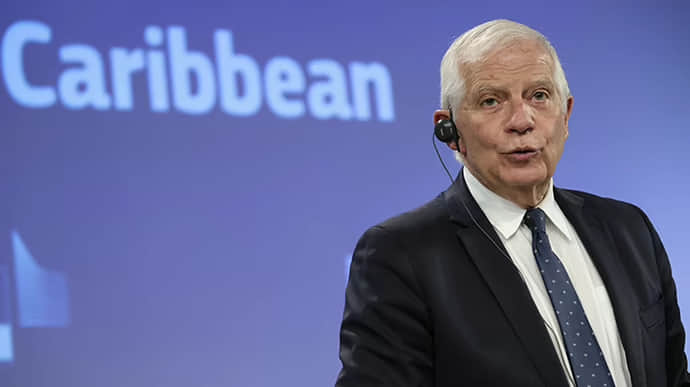House passes $3B veterans funding patch as Republicans scoff at massive VA shortfall
The House passed an emergency spending bill Tuesday night to boost veterans funding by almost $2.9 billion amid Biden administration warnings that VA benefits are at risk this month. While that multi-billion-dollar infusion has bipartisan support, a follow-on tranche could be harder fought. The Department of Veterans Affairs expects a much larger shortfall over the next year, and Republicans aren’t agreeing upfront to filling the funding gap as they prepare to play hardball over government spending totals after Election Day. Republicans blame the VA's funding gap on budget mismanagement by the Biden administration, while also acknowledging that the VA has been providing health care and disability benefits to more veterans since Congress cleared a bill in 2022 to expand services to those exposed to toxic substances. "But this isn't smoke and mirrors. There are more veterans, there are more benefits. These are good things," said Rep. Mike Garcia (R-Calif.), the bill's sponsor. "All we're asking for is the president's budget request and the congressional processes reflect the higher demands and thus the higher dollar values." Broader fight: Beyond the almost $2.9 billion the House backed Tuesday by voice vote, the Biden administration estimates a shortfall of nearly $12 billion in veterans services through next fall. The extra sum could become a conflict point this month as congressional leaders negotiate a bipartisan stopgap funding bill to keep government agencies funded beyond Oct. 1. And if the shortfall isn’t remedied in that patch, it’s expected to factor into negotiations later this year when congressional leaders haggle over the “topline” funding levels that set the framework for final government funding bills. That’s because VA funding typically falls under the non-defense bucket Democrats will be trying to increase, as Republican leaders argue for a higher share on the defense side of the ledger. Counting extra VA money under the domestic total would benefit GOP negotiators, while breaking it out as emergency cash would likely afford Democrats more leverage in scoring other non-defense funding. What’s next: Senate leaders are expected to fast-track passage of the VA patch to clear the measure for President Joe Biden’s signature in the next few days. The Biden administration told lawmakers in July that the money is needed to ensure payments aren’t missed on Oct. 1.
The House passed an emergency spending bill Tuesday night to boost veterans funding by almost $2.9 billion amid Biden administration warnings that VA benefits are at risk this month.
While that multi-billion-dollar infusion has bipartisan support, a follow-on tranche could be harder fought. The Department of Veterans Affairs expects a much larger shortfall over the next year, and Republicans aren’t agreeing upfront to filling the funding gap as they prepare to play hardball over government spending totals after Election Day.
Republicans blame the VA's funding gap on budget mismanagement by the Biden administration, while also acknowledging that the VA has been providing health care and disability benefits to more veterans since Congress cleared a bill in 2022 to expand services to those exposed to toxic substances.
"But this isn't smoke and mirrors. There are more veterans, there are more benefits. These are good things," said Rep. Mike Garcia (R-Calif.), the bill's sponsor. "All we're asking for is the president's budget request and the congressional processes reflect the higher demands and thus the higher dollar values."
Broader fight: Beyond the almost $2.9 billion the House backed Tuesday by voice vote, the Biden administration estimates a shortfall of nearly $12 billion in veterans services through next fall.
The extra sum could become a conflict point this month as congressional leaders negotiate a bipartisan stopgap funding bill to keep government agencies funded beyond Oct. 1. And if the shortfall isn’t remedied in that patch, it’s expected to factor into negotiations later this year when congressional leaders haggle over the “topline” funding levels that set the framework for final government funding bills.
That’s because VA funding typically falls under the non-defense bucket Democrats will be trying to increase, as Republican leaders argue for a higher share on the defense side of the ledger. Counting extra VA money under the domestic total would benefit GOP negotiators, while breaking it out as emergency cash would likely afford Democrats more leverage in scoring other non-defense funding.
What’s next: Senate leaders are expected to fast-track passage of the VA patch to clear the measure for President Joe Biden’s signature in the next few days. The Biden administration told lawmakers in July that the money is needed to ensure payments aren’t missed on Oct. 1.


